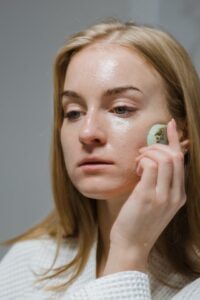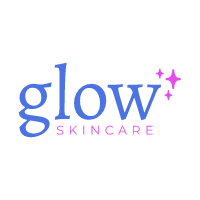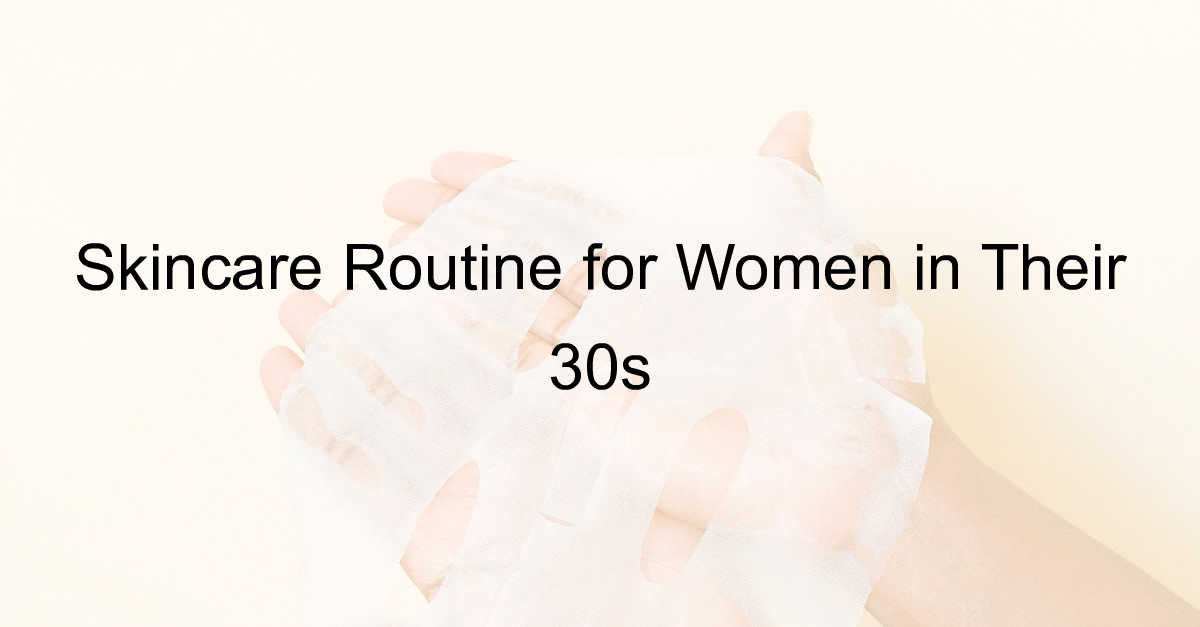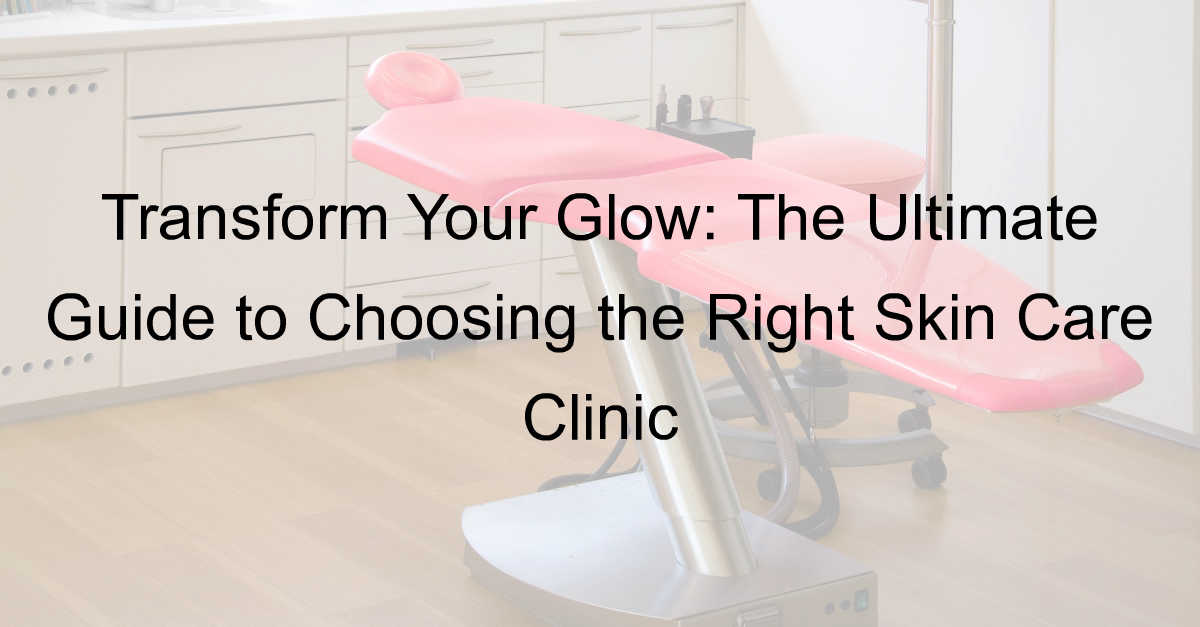Effective Skincare Routine for Aging Skin
As we age, our skin undergoes various changes that require a tailored skincare routine to maintain its health and vitality. Factors such as decreased collagen production, reduced skin elasticity, and slower cell turnover contribute to the visible signs of aging, including wrinkles, fine lines, and dryness. Developing an effective skincare routine can help mitigate these effects and promote a more youthful appearance. Here’s a detailed guide to the best skincare routine for aging skin.
click here for more information
Understanding Aging Skin Before diving into specific products and routines, it’s essential to understand the changes that occur in aging skin:
- Decreased Collagen and Elastin: Collagen and elastin are proteins that provide skin with firmness and elasticity. As we age, their production slows down, leading to sagging and wrinkles.
- Reduced Moisture: Aging skin often becomes drier due to reduced natural oil production, which can exacerbate the appearance of fine lines and wrinkles.
- Slower Cell Turnover: The skin’s ability to shed old cells and generate new ones diminishes, resulting in a duller complexion and uneven texture.
- Sun Damage: Years of sun exposure can lead to age spots, pigmentation, and further breakdown of skin proteins.
1. Morning Skincare Routine
A well-rounded morning routine sets the tone for your skin’s health throughout the day. Here’s what you should include:

Photo:Polina Kovaleva
a. Cleansing
Start your day with a gentle cleanser that suits your skin type. For aging skin, consider a hydrating cleanser that won’t strip away essential moisture. Look for products containing ingredients like glycerin or hyaluronic acid to maintain skin hydration.
b. Toner
Toning helps to balance the skin’s pH and can provide additional hydration. Opt for a toner with ingredients like rose water or chamomile, which have soothing properties. Avoid toners with high alcohol content, as they can be drying.
c. Antioxidant Serum
Incorporate a serum rich in antioxidants, such as Vitamin C or E. Antioxidants help to protect the skin from environmental damage and can improve skin texture and brightness. Vitamin C is particularly effective in reducing age spots and promoting collagen production.
d. Moisturizer
Even if you have oily skin, don’t skip the moisturizer. Choose a hydrating formula with ingredients like hyaluronic acid, peptides, and ceramides. These ingredients help to lock in moisture and support the skin’s barrier function.
e. Sunscreen
Sunscreen is crucial in any skincare routine but becomes even more important as you age. Use a broad-spectrum sunscreen with an SPF of at least 30 to protect against UVA and UVB rays. Sunscreen helps prevent further damage and premature aging caused by sun exposure.
2. Evening Skincare Routine
The evening routine focuses on repair and renewal. Follow these steps to help your skin recover overnight:
a. Cleansing
Cleanse your skin to remove makeup, sunscreen, and impurities. Consider using a double-cleansing method if you wear heavy makeup: start with an oil-based cleanser followed by a water-based one.
b. Exfoliation
Exfoliation helps to remove dead skin cells and improve texture. For aging skin, use a gentle exfoliant with alpha-hydroxy acids (AHAs) like glycolic acid or lactic acid. These acids help to promote cell turnover and improve skin radiance. Aim to exfoliate 1-2 times a week to avoid over-exfoliation.
c. Treatment Products
Incorporate treatment products tailored to specific concerns. Retinoids, such as retinol or tretinoin, are excellent for stimulating collagen production and reducing the appearance of wrinkles. Start with a lower concentration and gradually increase as tolerated.
d. Moisturizer
Apply a richer night cream or moisturizer in the evening to support skin hydration and repair. Look for ingredients like peptides, hyaluronic acid, and niacinamide, which help to nourish and strengthen the skin overnight.
e. Eye Cream
The skin around the eyes is particularly delicate and prone to signs of aging. Use an eye cream with ingredients like peptides, caffeine, or hyaluronic acid to address dark circles, puffiness, and fine lines.
3. Additional Tips for Aging Skin
a. Hydration
Stay hydrated by drinking plenty of water throughout the day. Proper hydration supports skin elasticity and helps to maintain a plump, youthful appearance.
b. Healthy Diet
A balanced diet rich in antioxidants, vitamins, and healthy fats can benefit skin health. Include foods like fruits, vegetables, nuts, and fatty fish to support skin repair and overall wellness.
c. Regular Exercise
Exercise improves blood circulation, which can enhance skin health and give your complexion a natural glow. Aim for at least 30 minutes of moderate exercise most days of the week.
d. Avoid Smoking and Excessive Alcohol
Smoking and excessive alcohol consumption can accelerate skin aging and lead to dryness and wrinkles. Avoiding these habits can help maintain skin health and appearance.
e. Professional Treatments
Consider incorporating professional treatments into your skincare routine, such as chemical peels, microdermabrasion, or laser therapy. These treatments can help address specific concerns like pigmentation and texture.
Additional Tips: Diet, Hydration, and Professional Treatments for Aging Skin
Aging skin requires a thoughtful approach to skincare that focuses on hydration, protection, and repair. By incorporating a consistent morning and evening routine with targeted treatments, you can address the signs of aging and promote a healthier, more radiant complexion. Remember to choose products that cater to your specific skin concerns and consult with a dermatologist for personalized recommendations. Embrace these practices to achieve glowing, youthful skin at any age.
Related: Skin Care Tips and Advice for Your Skincare Routine What Are the Best Skincare Ingredients for Sensitive Skin?







